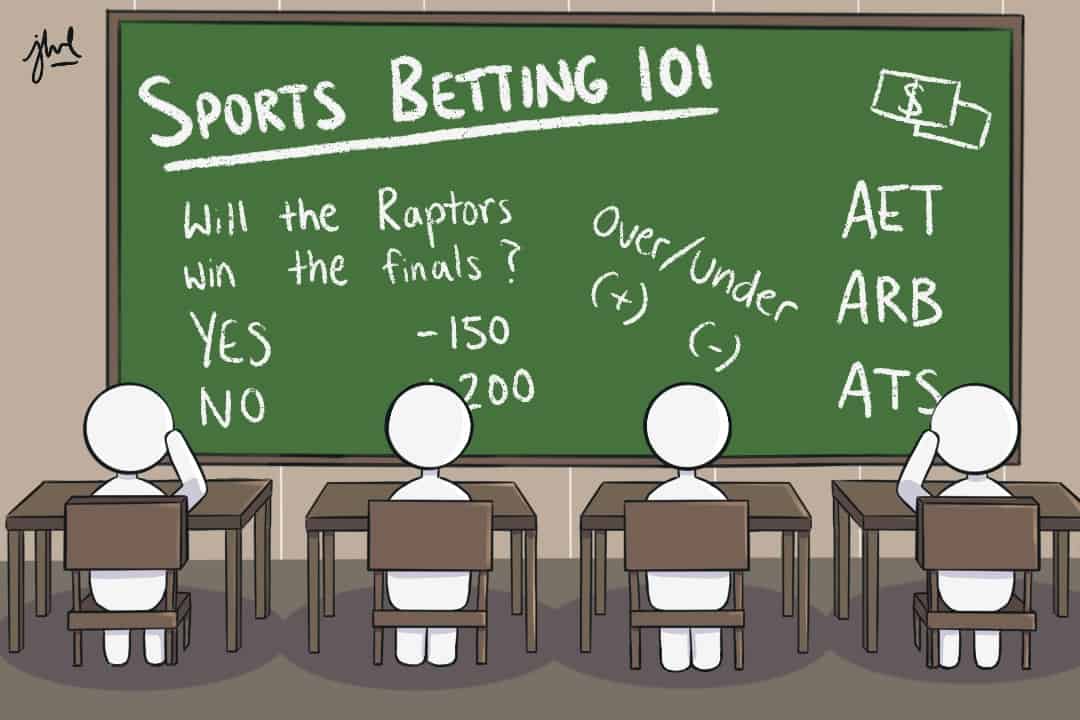Being able to make money by making predictions about your favourite sports teams and players sounds like a great idea. However, when it comes to understanding the world of sports betting, the terminology that goes with it — like ‘plus’ and ‘minus’ or ‘over’ and ‘under’— can be overwhelming. Oftentimes, sports betting may seem like doing math and playing double dutch at the same time.
With the experience I have gained over time, I’ve concluded that the possibilities that come with sports betting are endless. There are bets for everything, from which team is going to win the coin toss to the colour of Gatorade the winning team will throw on their coach, and even whether Snoop Dogg would have smoked marijuana during the half-time show of Super Bowl LVI.
These are all categorized as proposition bets, or ‘prop’ bets — bets that are not linked to the final outcome or score of the game, but are rather linked to an occurrence or non-occurrence of an event during the game.
Many prop bets have to do with specific players, how many points they put up, goals they score, runs they get, and so on; if the players’ team wins or loses, the bet is not affected. Prop bets are interesting because you can get very creative with them.
Other than prop bets, there are three main types of bets for most professional sports that involve two teams: the moneyline, spread, and total.
With a moneyline, you are simply betting if a team is going to win or lose without having to meet a specified margin or score. Based on whether the team is favoured or not — which is decided based on numerous factors including records, players, and previous games — there are odds given on the moneyline.
If a team is favoured (–) you have to bet more to make a good profit. If the team is unfavoured, (+), you can win a good profit for less money, because a win is less likely to occur. For example, Team A is favoured over Team B. The odds for Team A are –175 and the odds for Team B is +140. This means that you would have to bet $175 on Team A to make a total of $275, gaining a $100 profit if they win. If you bet $100 on Team B and they win, you will win a total $240, with a $140 profit.
With a spread, you are predicting certain conditions regarding the final score of a game. Each team is assigned a point-spread number, which you are able to change and choose for yourself on certain betting websites. You may want to do this if you are confident that a team will win or lose by a certain number of points.
For example, a spread could have Team C assigned +4.5 and Team D assigned –4.5. This means that if you choose Team D, they would have to win by five or more points in order to ‘cover,’ or win the spread. On the other hand, if you choose Team C, which is the unfavoured team, they will cover the spread if they win outright or if they lose by four points or less.
Half points are not actually achievable in the games, so you either go up or down depending on which team is chosen. This is usually done to avoid a push, or an occasion where the point spread hits the exact number that was bet.
Similar to the moneyline, there are also odds put on the spread to determine and calculate the amount of money that is up for the win.
Totals, which are sometimes referred to as ‘over/under’ (O/U) bets, look at the score between the two teams, rather than winning or losing. You are predicting if the combined score will be over or under a given number. With baseball, you may bet O/U 8, basketball O/U 215, football O/U 35, and hockey O/U 6. These numbers are the possible amounts for the teams combined final scores, as certain sports have higher scores than others.
Totals are also given odds. Betting over or under may not have the same odds; it may be more or less likely that the score will be above versus below that of what is stated.
These three types of bets can all be straight bets or, if you’re feeling lucky, parlays. Straight bets are a single wager on an event, whereas parlays are multiple single-bet wagers linked together to create a combined bet. Each single bet in the parlay must be won in order for the parlay to be considered a win.
Since this is a lot of information to digest, many online apps have made betting much easier by doing the maths and odds for you. While this may be more convenient, I still caution people to do their own research before betting, especially since they can lose money with the click of a button.
That being said, the question remains: can betting make games more interesting to watch, because the stakes are now higher? The answer: you bet!


